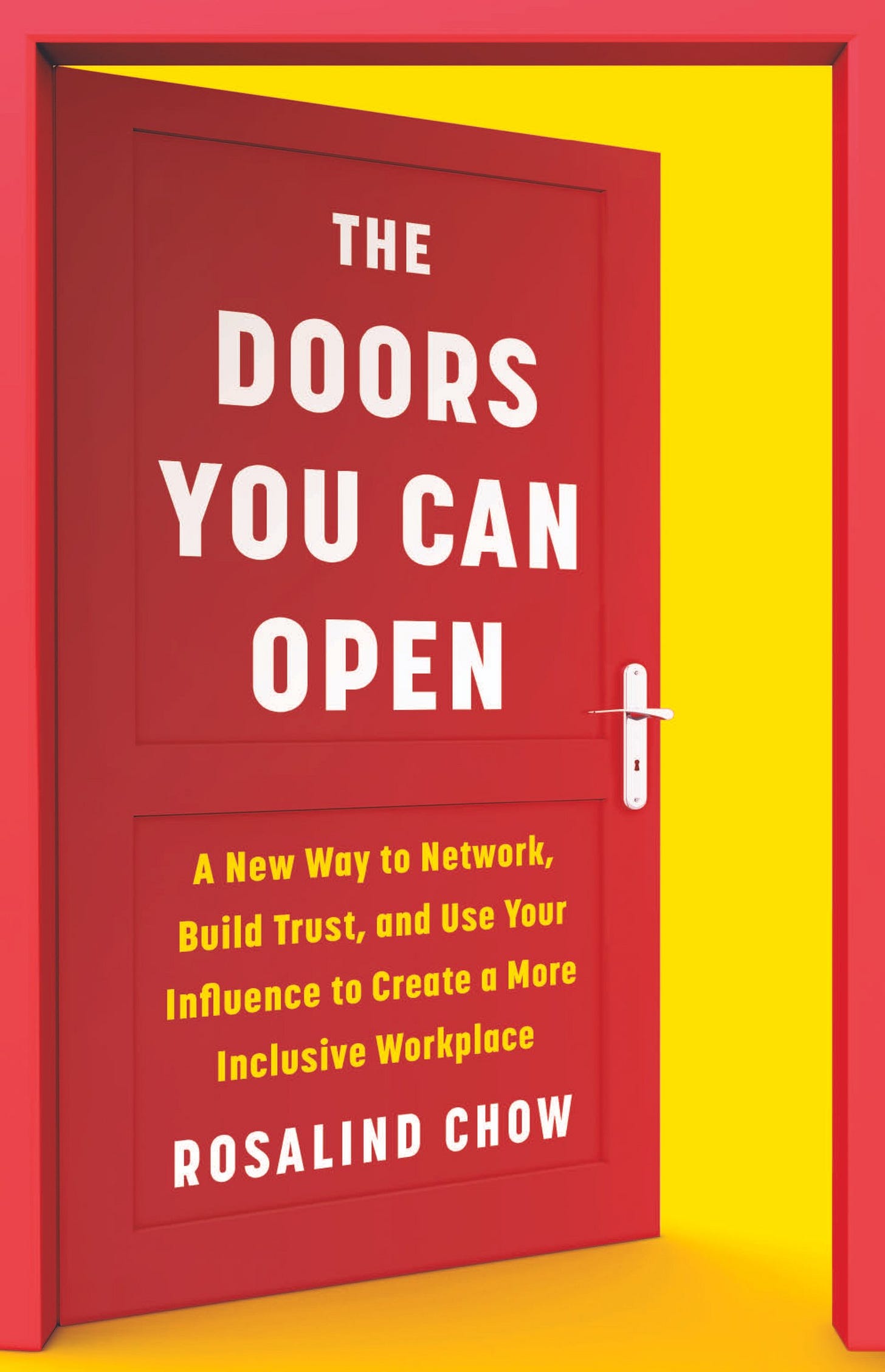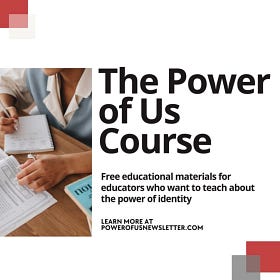Opening Doors and Sponsoring Success: An Interview with Rosalind Chow
Issue 168: Rosalind Chow's new book teaches readers new ways to network, build trust, and create a more inclusive workplace
Networking can kind of suck. It can feel overwhelming, inauthentic, or especially tricky if you are an early-career introvert. But in a world where connections and referrals are often the key to tangible professional opportunities, most of us can’t escape it.
Rosalind Chow, Professor of Organizational Behavior and Theory at Carnegie Mellon University rethinks workplace networking, trust and influence in her new book, The Doors You Can Open. Her research, teaching, and writing focuses on how people participate in social systems in ways that can have implications for inequitable outcomes (e.g., nepotism).
In the interview below, she introduces the basic ideas of sponsorship—opening doors for others—and how to be a sponsor even when you may not be in a position of power and decision-making. She explains how helping people who need each other connect, sharing other people’s good news, or planning ahead of time how to highlight a colleague’s accomplishments at a networking event are all examples of sponsorship that anyone can execute.
“There’s more than one way to be valuable. Yes, we can be valuable by holding resources others want. But we can also be valuable by having problems others can solve, or by connecting people who need each other.”
—Rosalind Chow
What does your book teach us about social identity or group dynamics?
So many things! But one of the most important is that too many of us are fixated on finding sponsors—people who can open doors for us—instead of being sponsors, people who open doors for others. When we focus on finding sponsors, we’re essentially fixated on what other people can do for us. That leads us to seek out those with power or resources—and to overlook people for inaccurate reasons, based on stereotypes about who has power.
If you’re someone who’s unfairly seen as lacking value, that doesn’t feel good. But networking also feels hard because when it’s all about accessing resources, it commodifies us. If we want people with power to see us as worthy, we feel pressure to prove that we have power too—so we talk about our credentials, our jobs, the fancy vacations. That’s why networking can feel inauthentic.
But there’s more than one way to be valuable. Yes, we can be valuable by holding resources others want. But we can also be valuable by having problems others can solve, or by connecting people who need each other. That’s what sponsors do: they identify people who can help solve others’ problems and bring them together. Sponsors are essential to group functioning—they’re the knowledge managers who keep track of who needs what and who can help. And in return, they gain respect, admiration, and status. Everyone benefits: the person being sponsored, the helper, the sponsor, and the group.
Why did you write this book and how did writing it change you?
I wrote this book to help people see the influence they already have—especially over how other people are perceived and treated. We often talk about inclusion as a matter of treating people well, but I want readers to think bigger: how can we shape the relationships around us to be more inclusive, too? That’s a hopeful and empowering way to think about our roles in social systems.
Writing the book changed me. It made me more attuned to the good in others, because the more good I notice, the more I can sponsor. When someone does something kind or effective, I make a point of thanking them—and then I go a step further and make sure others hear about it. If a service worker helps me, I don’t just say thank you; I’ll stay on the line to speak with their manager. That’s sponsorship: making people’s contributions visible.
We should want good people to be seen. But right now, our social information is skewed. We hear more about norm violators than norm upholders. That makes the world feel worse than it might actually be—and it makes it harder to build a better one. One antidote is to actively elevate those who make things better. Sponsor them.
The beauty of sponsorship is that it changes stories—about others and about ourselves. When someone knows they’ve been sponsored, they’re more likely to keep living up to that reputation. Observers start treating them in ways that reinforce that positive image. And we, as sponsors, come to see ourselves as people who notice others and spread good news. That’s a virtuous cycle worth creating.
What will readers find provocative or controversial about your book?
I push back on the idea that only powerful people can be sponsors. Anyone can sponsor—it’s about shaping how others see someone. Quiet acts count: an analyst telling new hires which managers are supportive, a student introducing a classmate to friends, a manager giving a team member the chance to shine. These are real and meaningful forms of sponsorship.
But sponsorship isn’t always a good thing. It can be nepotism. It can look like favoritism or bias, especially when we think someone is “undeserving.” And we know that people from marginalized groups are less likely to be seen as deserving in the first place, which makes them less likely to receive sponsorship. When we’re not intentional, sponsorship can deepen inequality. But used well, it can also correct imbalances. That’s my hope for how people will use it.
Do you have any practical advice for people who want to apply these ideas (e.g., three tips for the real world)?
Tip #1: Start small.
An easy, no-cost way to sponsor someone is to share their good news. Self-promotion is tricky—people don’t like it, but if you don’t do it, no one knows what you’re good at. That’s the self-promotion paradox. But if you promote someone else, they get the benefit without the penalty—and you get credit for being generous and observant. Everyone wins.
Tip #2: Use a wingperson.
Don’t just show up to networking events with a friend and stick to each other. Go with a plan. Decide ahead of time what you’ll highlight about each other, then make those points in conversation. It feels more natural, especially for introverts. You both avoid the self-promotion penalty, and the information still gets out.
To learn more about The Doors You Can Open and purchase the book, visit Rosalind’s website or order the book here.
Catch up on the last one…
If you are an educator who is teaching a social identity or group psychology course in the next semester, check out our free teaching materials! We have put together a free teaching kit with slides, exam questions, activities, videos and more below:
The POWER OF US Course: A syllabus for teaching about social identity
We have created a free syllabus and supplementary teaching materials for anyone interested in teaching about “The Power of Shared Identity”. This is a chance for people to learn directly from our book, and go beyond to dig into the original research, new studies, and educational videos and podcasts we created. We curated the most relevant articles for each chapter and added new research published since we wrote the book.




